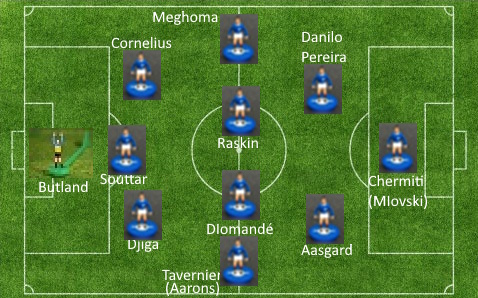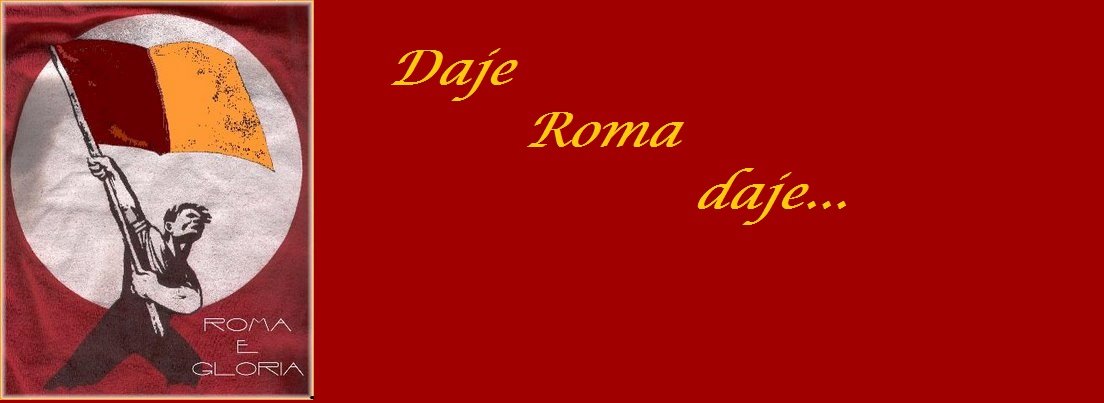In the wake of Antigone. Milan-Roma 1-0. Rangers.
To speak of Antigone is to speak of the conflict between human law and divine law. This is very contemporary. By extension, one could therefore speak of the conflict between government and the judiciary in Italy and the US, and the conflict between Italy's most important clubs, particularly the so-called "striped" teams (Juve, Inter, and Milan), often favored by those in power, and Roma, which, as the legitimate heir to the idea of the Roman Empire, represents something metaphysical.
We are in Ancient Greece and there is the so-called War of the Seven between Argos and Thebes. Polynices, who commands the siege of Thebes, dies and Creon, the Theban king, decides that Polynices should not be buried. At this point, the scene enters. Antigone who buries his brother Polynices, because this is divine law. Sophocles, who transferred this myth to the stage in a beautiful tragedy, wanted to highlight the conflict between human law (Creon) and divine law (Antigone).
The conflict between divine law and human law leads us to discuss the latest domestic political developments in several countries, such as Italy and the United States. In this sense, the conflict between governments (human law) and the judiciary (divine law) also applies to constitutional changes.
In reality, the founding fathers of Italy and the United States crafted the Constitution in the best possible way, but times change, political situations change, and subtle (but not excessive) changes are needed. For this reason, I find the change to the Italian judicial system generally just. I also find the Strait of Messina Bridge a valid reason to build the other infrastructure needed in Calabria and Sicily. That is, assuming there are no security concerns, which I have no knowledge of.
Likewise, I find it wrong to accuse the judiciary whenever it raises procedural objections to the executive, assuming that there is actually political will as the motivation (the phantom communist judges). This is a discussion that also concerns the US. And here we return to Antigone. The conflict between Creon and Antigone is a conflict between the executive, which is based on temporary requests, and the judicial system, which is based on the Constitution and, more generally, on the law. Always remembering that the judicial system, and therefore the laws, have been the foundation of the Western political system since Hammurabi and then, in a more codified way, with Roman law.
Just as Argos besieged Thebes and was defeated, Roma besieged Milan for much of the match, but Milan ultimately prevailed. Allegri did well for setting Milan up with a solid defensive phase and then scoring on the counterattack with a run by Leao and an assist for Pavlovic. We were too wasteful in attack. Kudos to Allegri, who admitted that we deserved to be ahead in the first half. Maignan also did well for saving Dybala's penalty.
| 10th Matchday Serie A | First Half | Second Half | Final Score |
 | |||
 |
Overall, Roma played well, creating good chances, especially in the first half. We played without a center forward, yet we had chances to score. The left wing remains a problem, where Bailey could perhaps be deployed. The Europa League match in Glasgow will tell us whether this could be the solution for the left-sided striker.
The feeling is that human law tends to work against Rome. Perhaps out of natural racism toward the Capital. But, in the long term, divine law demands the success of Rome as the historical heir to the symbols, colors, and name of the Roman Empire.
We'll then go to Glasgow to play against the glorious Rangers. Scottish teams have an extraordinary allure. Scottish support is very passionate. They often have religious and political overtones. Rangers fans are far-right. Loyalists to the English Crown, they develop their game with a very Anglo-Saxon mentality. They play long balls and pedal. They're dangerous on set pieces and generally on volleys, especially when right-back Tavernier crosses. They also create chances from touchlines. An almost rugby-like mentality.

The new coach is the German Danny Roehl, who collaborated with Hansi Flick in the treble year of Bayern Munich (2019-20), worked in Nagelsmann's RB Leipzig, one of the theorists of gegenpressing, and
He's given the club a more European, more German (modern German) mentality, with high pressing and more possession. This has led to two wins in the last three games, with a defeat in the final derby against Celtic, which we'll discuss in more detail in December when we face him.

They're all good players, but the one who impressed me the most is Diomandè: a midfielder, good at recovering and starting with dribbles, ready for more prestigious stages, while Raskin is the player best suited to building from the back. Also keep an eye on left-back Meghoma, who's very quick. Celik and Soulé will need a great performance. Chermiti or Miovski will play as the starting striker, while the left-back, Danilo Pereira, is the most technically gifted player in attack. Mancini, Ndicka, and Ghilardi, who I'd try, will all have to play very well.
Antigone helps us talk about the conflict between the judiciary and governments in Italy and the USA, while Rome goes to Glasgow, after the defeat in Milan. My feeling is that there is a divine law, the same one that defended Antigone, which will benefit Rome, the heir to the Roman Empire, in the long term.
At the end of the tragedy, Antigone is condemned to death. Creon's son, Antigone's betrothed, dies. Creon is doomed to a life of remorse and suffering. It's as if divine law, according to Sophocles, must prevail. And it would be wonderful if Rome were truly favored by divine law. It would be the certainty of our success.
Daje Roma!
Giordano Sepi
